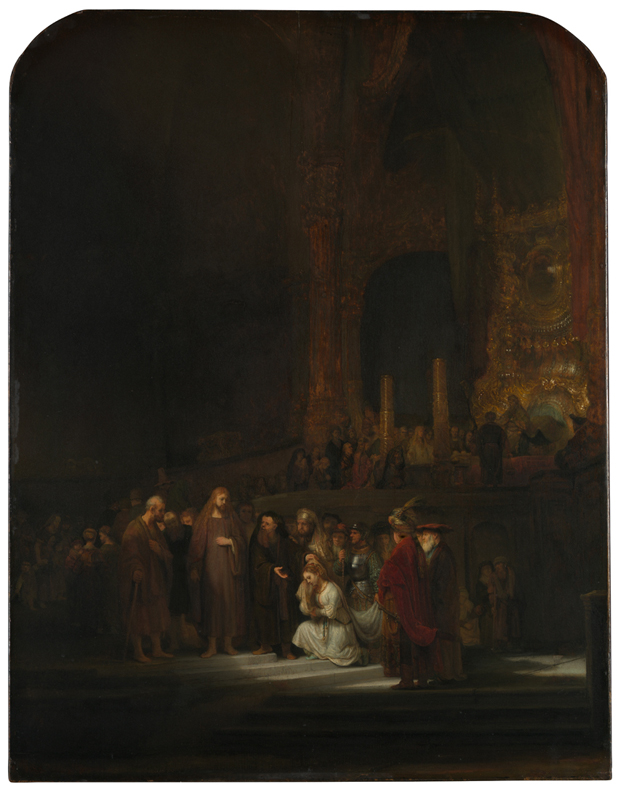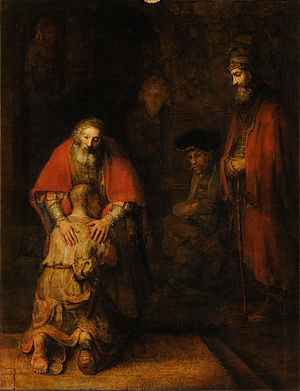Scripture Readings 7th April 2019, 5th Sunday in Lent, Year C
Second Isaiah describes the new Exodus, the return from exile in Babylon. God shows who he is by his preparations and care for their return. These are so wonderful that his servant Israel, his chosen witnesses, will no longer need to remember their Exodus from Egypt. Exodus is a repeatable pattern. The Lord even forgives Israel’s many sins, which led to their exile, and will continue to do so, because “I have redeemed you; I have called you by name: you are mine”.
The Psalm celebrates the Israelites’ joy after their return from exile in Babylon.
Writing from prison, Paul shares his hopes, fears and convictions with the Philippians. The great gift of knowing Jesus Christ as Lord makes his previous righteousness under the Law seem worthless. He is possessed by Christ but not yet arrived, keeping his eye on the final goal of living in God’s new world.

Rembrandt, 1606 – 1669
The Woman taken in Adultery
1644
Oil on oak, 83.8 x 65.4 cm
Bought, 1824
NG45
https://www.nationalgallery.org.uk/paintings/NG45
The story of the woman caught in adultery is found in different places in various manuscripts: it fits better with Luke’s gospel, but here in John’s gospel it matches the changing mood. This chapter opens with a woman about to be stoned, then freed from death. But it ends with people seeking to stone Jesus. Jesus has shown them God’s wisdom, different from men’s.
Psalm Response: What marvels the Lord worked for us! Indeed we were glad.
(Isaiah 43: 16-21; Psalm 125(126); Phil 3: 8-14; John 8: 1-11)
